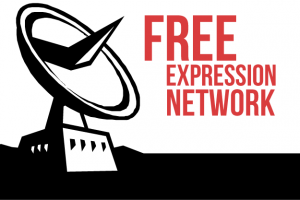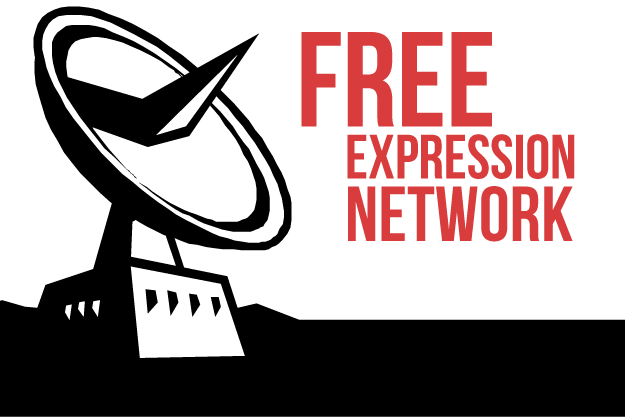
The Free Expression Network's (FEN) student summit, an opportunity for students affiliated with network member organizations to gather, discuss and gain greater insight into current issues of free expression and censorship on college campuses, took place yesterday at the Newseum in Washington D.C.
Moderated by staff members of FEN member organizations, Shelby Emmett from the Foundation for Individual Rights in Education (FIRE) and Lee Rowland from the American Civil Liberties Union (ACLU) the discussion began with a questions about the appropriate response of university administrators to the presence of difficult, or indeed hateful, political ideas or rhetoric on campus. Referring specifically to the Trump chalk controversy– when scribbles in support for the Republican presidential candidate caused outcry on campuses such as Emory University– attendees discussed an approach that sought to respond to difficult speech, rather than censor it. In doing so, one member of the audience stressed he need to uphold a diverse range of opinions and perspectives, whether it be a religious, racial or gendered viewpoint.
The topic of trigger warnings, a term that, for some, intrinsically connotes censorship was then discussed. The moderators asked whether a professor who alerts to his/her class at the beginning of the semester that difficult or upsetting ideas are to be discussed could be understood as issuing a trigger warning. The concern was that over-use of the prickly term can obfuscate a warning that may actually be helpful and encourage free expression.
Indeed, similar qualms were brought when hate speech, the next topic, was discussed. "Is hate speech just stuff we don't like" postulated Zach Wood, a student at Williams College who, in February, made headlines after the college president–in a heavily condemned decision– cancelled a visit from conservative columnist John Derbyshire, whom Wood invited in an attempt to expose students to unpopular or provocative viewpoints. The talk was to be part of the activities of a student group at Williams Colleg called "uncomfortable learning,"which Wood heads.
The discussion concluded with a reflection on the differences between public and private universities in their willingness to defend free speech on campus. A show of hands indicated that students who attended public universities were, on the whole, more satisfied with their school's approach to campus free speech than the private school students. One audience member speculated that the consumer-oriented attitude of students at private universities, because of their price point, encouraged them to expect an environment that made them feel “safe” and comfortable. This differs from public universities, which students felt were on the whole more mindful of the need to accommodate a wide range of student viewpoints.
In all, the FEN summit was a fruitful exchange of thought and ideas and an opportunity for free speech advocates at universities across the nation to connect and even strategize for the school year ahead. FEN hopes the event will become an annual occurrence.


